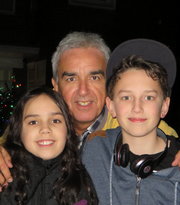 “Indigenous people possess a gift. This is a gift of healing, strong relationships and a deep connection to land, from a culture that has flourished over many thousands of years.” David Clark and Michael Liu
“Indigenous people possess a gift. This is a gift of healing, strong relationships and a deep connection to land, from a culture that has flourished over many thousands of years.” David Clark and Michael Liu
1. Nature of the Problems
As a result of the historical experiences of colonisation (and associated violence and control), forcible removal of children, and loss of culture and land, Indigenous people of Australia (and other countries) have suffered a trauma that has been passed unwittingly down through the generations.
The consequences of this historical, or intergenerational, trauma include poor physical health, mental health problems, drug and alcohol addiction, domestic violence and abuse, self-harm and suicide.
Today, the impact of historical trauma is exacerbated by economic and social disadvantage, experiences of racism and paternalism, and ongoing grief resulting from multiple bereavements. It is exacerbated by closing down of remote Indigenous communities, destruction of Indigenous sacred sites, and turning over of Indigenous land to the mining industry.
Society’s health care, social welfare and criminal justice systems do not address the core issue of trauma amongst Indigenous people. Rather, they just attempt to manage the symptoms, e.g. by prescribing medications (which often worsen the problem) or incarcerating people.
This ‘band-aid’ approach has fostered a climate of disempowerment, hopelessness, blame and shame that perpetuates psychological problems. It has placed strong barriers in the way of healing. It has contributed to youth suicides, incarcerations and child removals amongst Indigenous people reaching record levels at the present time. Trauma will pass on to another generation.
Self-determinism and empowerment are known to be key to recovery/healing from trauma, mental health problems and addiction.
Despite this fact, Australian governments and associated care systems see themselves as the agents of change for Indigenous people. Decisions that impact on Indigenous peoples’ health and wellbeing are made by politicians and civil servants who have little or no understanding of Indigenous culture and worldview, or how people heal from problems and get their lives back on track.
Governments also ‘impose’ on Indigenous people a behavioural healthcare (e.g. mental health, addiction) system that many experts consider to have serious problems. Much of the system has poor outcomes, even for non-Indigenous people. It is dominated by the medical model and a focus on pathology, deficits and symptom management.
Much of the system pays scant attention to a person’s life experiences that actually underlie their psychological distress. It ignores key principles that are known to facilitate recovery and healing. People’s trauma is often worsened by treatment or incarceration.
Society has the knowledge to heal historical trauma and its consequences. In fact, many Aboriginal people possess the necessary coping mechanisms, skills and knowledge, and they’ve been healing themselves for years in their struggle to rise above historical trauma.
Successful Indigenous healing initiatives have been developed – the vast majority of these are poorly funded and/or lose their funding – and research has demonstrated the key principles that underlie healing. Despite this knowledge, these principles are ignored by much of our care systems and services.
Information about Indigenous healing is poorly circulated. It is quite a remarkable situation that whilst governments say they spend many millions of dollars trying to improve Indigenous health and wellbeing, there is such little high quality information circulated about historical trauma, healing, and various other key issues.
Where are the Indigenous healing stories that give Indigenous people hope and understanding? The Stories that treatment workers can learn from and improve their skills and work practices? Remember, the people who know most about healing are those that have healed. Where is the high quality education and training that will help improve the situation?
Instead of inspiring people with Stories of success, society continues in the main to be negative about Indigenous health and wellbeing. Indigenous people are constantly told they are a problem or they are wrong.
All this does is disempower Indigenous people – and we’ve been doing that for over 200 years in Australia – and leads to the rest of society blaming Indigenous people for not doing better. This, in turn, creates barriers to recovery and healing.
Politicians, civil servants, treatment services and others need to take responsibility for the failures. Without wishing to sound cynical, I often feel that the care systems are there to provide jobs for the workforce, rather than help the people who need help to heal and get their lives back on track. There are too many vested interests and these get in the way of people trying to change the system for the better.[1]
It is time for a profound change. Society must address a major civil rights issue, the poor health and wellbeing of many Indigenous people. In tackling this issue, wider society will benefit. Past experience shows that the changes that are required will not initially come from government – they must be generated at a grassroots level.
[1] In saying all of this, I am not criticising individual workers, many of whom do a great job under difficult circumstances. In fact, many workers would agree with what I say. What I am saying is that our care systems have ‘gone awry’ and now have the wrong priorities. As a society, we are doing nowhere near as well as we could do in helping people heal from life problems.


